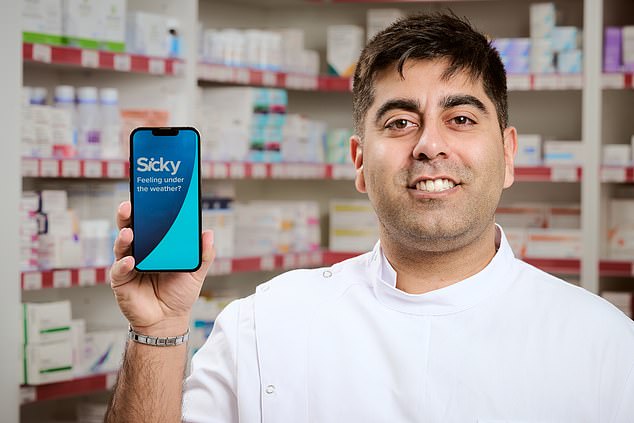Dr Max Mollenkopf calls out bosses who ask workers for medical certificates
A fed-up doctor has called out Australian bosses who are forcing workers to get a medical certificate for one day off.
Dr. Max Mollenkopf, owner of a GP practice in Newcastle, said appointments for medical certificates take time away from patients who are genuinely ill.
The doctor said he saw two to three patients a day who didn’t need treatment but needed a doctor’s note to take a day off, and it was a waste of his time.
“If someone is sick and wants to see me, I want them to be able to come in any day of the week,” Dr. Mollenkopf told the ABC. “I didn’t sign up to go into medicine to do HR policy on behalf of large companies.”
Max Mollenkopf, owner of a GP practice in Newcastle, says appointments for medical certificates take time away from patients who are really ill

A fed-up doctor has slammed Australian bosses for wasting his time by forcing their workers to get medical certificates for one day off (stock image)
When is a medical certificate required?
The Fair Work Commission said it is up to employers to make their own sick leave policies and that they can ‘request employees to provide evidence of just one day or less off work’.
“An employee who does not provide evidence to their employer when requested may not be entitled to pay for their sick or care leave,” Fair Work said.
Carys Chan, senior lecturer in organizational behavior and human resources at Griffith University, says asking for a medical certificate is important for many companies.
“If they’re going to pay their employee for sick leave, some employers will have a right to know that you’re really sick.”
She said this is especially important for people working in retail or frontline customer-facing roles, as their absence from work can make running the business difficult.
In Great Britain there is a ‘self-certification system’ for absences of seven days or less.
This means that employees do not need documentation from a doctor or healthcare provider for a period of less than seven days.
Dr. Mollenkopf said Australia should look at introducing a similar system to free up time for GPs.
“The people who want to take their 18-month-old child with an ear infection now have to go to the emergency department or an urgent care center or go through all these other steps because there’s an employee sitting there getting a piece of paper to keep their employer happy,” he said.
Rise of ‘mental health days’
Avinash Vazirani, the founder of sick leave certificate app Sicky, said physical illness is the most common reason for days off, but ‘mental health days’ are becoming increasingly popular.
He said Monday and Friday were the most requested sick days, with colds and flu being the most common illnesses, accounting for a third of absences.
Gastro and Covid were the next most common complaints at 19 percent, followed by migraines at nine percent and stress-related insomnia at seven percent.
However, the fast-growing reason for staying away from work has been to take up mental health care days, which have increased by a whopping 233 percent since Sticky launched in 2020 during the Covid pandemic.

Ailing co-founder Avinash Vazirani (pictured) said vague physical illnesses are the most common reason for days off, but ‘mental health days’ are becoming increasingly popular
